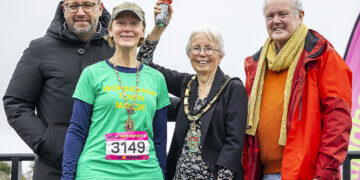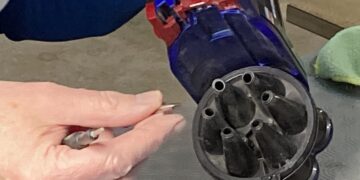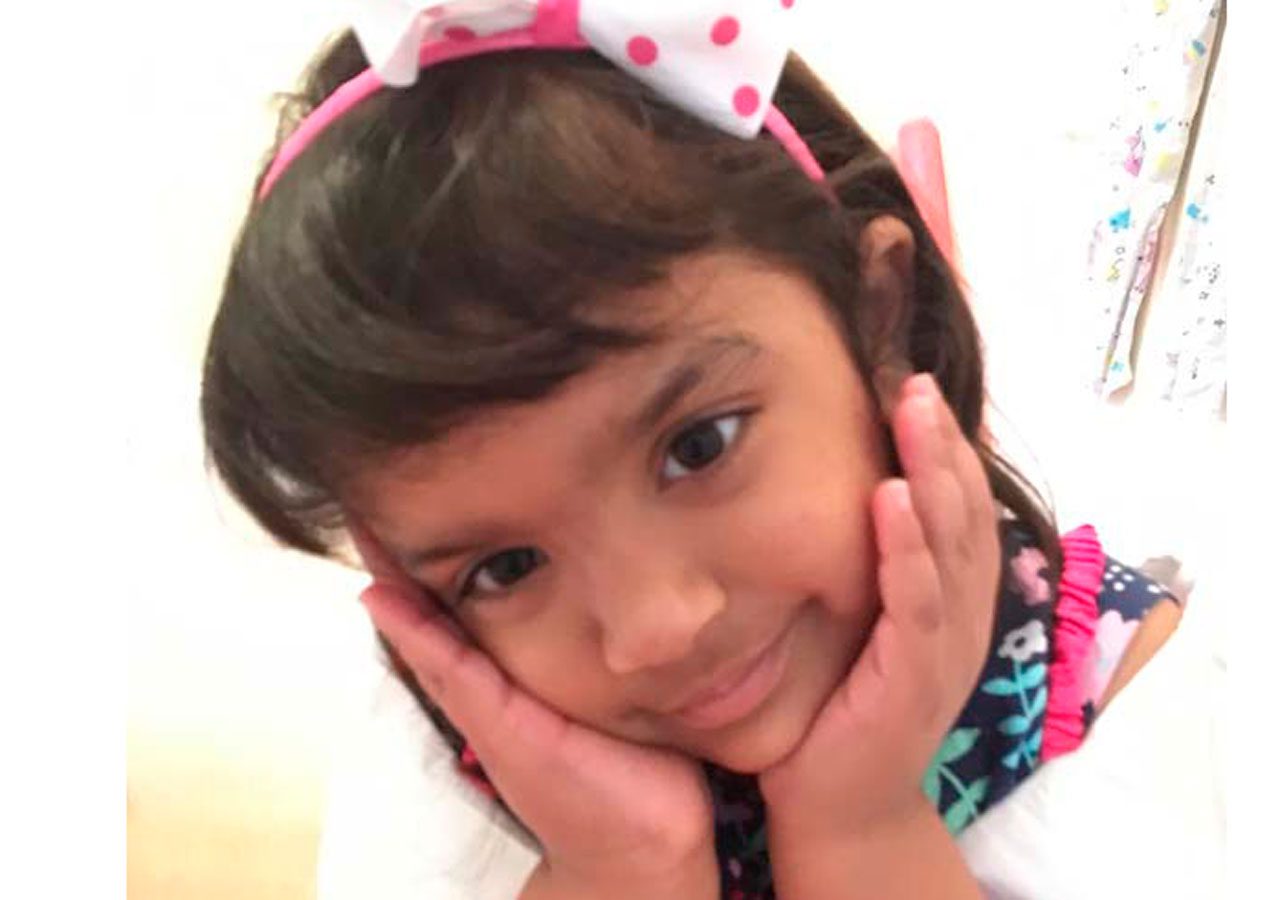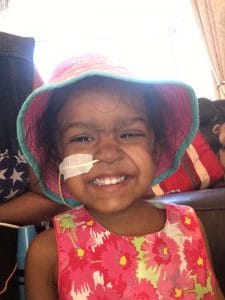 A SONNING family whose daughter had a cancerous tumour growing on her brain is urging families to share the signs and symptoms of the disease.
A SONNING family whose daughter had a cancerous tumour growing on her brain is urging families to share the signs and symptoms of the disease.
Nimita and Jay Mistry said that they were left devastated when their daughter Layla, now four, was diagnosed with a cancerous brain tumour in July 2016.
Initially, the Sonning Primary School pupil’s symptoms were passed off by her doctor as just an ear infection. But prescribed medicine didn’t help.
Nimita said: “Layla was also becoming increasingly unsteady on her feet and she didn’t want to walk.
“This went on for about a month and we knew something was seriously wrong so one weekend we took her to a walk-in centre and refused to leave without an answer.”
They were referred to see a specialist at The Royal Berkshire Hospital in Reading, who suggested a CT scan to rule out a brain abnormality. Following the scan, the family were given the devastating news that Layla had a mass on the back of her brain, which was probably a cancerous tumour, and she needed emergency surgery.
Nimita said: “I just listened. Everything felt surreal, it felt like it wasn’t me there, that this wasn’t our story, it wasn’t our daughter.
“Layla was barely two and she was so naïve and innocent in all of this.”
They were transferred to the John Radcliffe Hospital in Oxford where Layla had surgery that night to relieve the pressure on her brain.
“We were asked to give our consent for surgery which had a number of risks, including death.
“We didn’t know what to do and we couldn’t fully comprehend what was happening. But we had no choice but to say yes and pray that she would be okay.”
Layla was in surgery for an agonising nine hours.
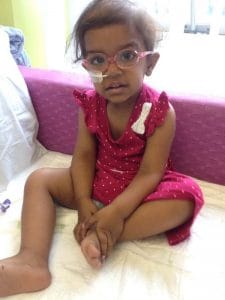
Layla spent two weeks in hospital while she recovered from surgery.
“She had lots of blood tests and cannulas required, which was so traumatic for her in her tiny veins – as it was for us to see her screaming and having to hold her down.”
After Layla was discharged from hospital her parents’ worst fears were confirmed when they were told her tumour, known as a medulloblastoma, was cancerous.
Nimita, also Mum to Dylan, then aged five, took leave from her job to care for both children full-time.
Layla started chemotherapy a few weeks later and experienced a number of side-effects, including hair loss, loss of appetite, weight loss, nausea, mouth ulcers, and anger. After her fifth cycle of chemotherapy, she also had high frequency hearing loss.
Nimita said: “About a week after her first chemotherapy cycle, Layla started to lose her hair. As a parent this was really hard to see. She had such beautiful curly hair. I think I found it harder than she did.
“Part-way through her treatment she stopped eating. She needed to be fed via a nasal tube, she also had trouble sleeping and at times was very difficult to control.”
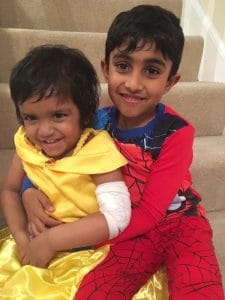
Layla had to have several blood and platelet transfusions as well as the first of her three stem cell transplants after the last cycle of high dose chemotherapy.
“It was relentless, Layla went through so much and we were exhausted,” Nimita said.
Layla is now on a ‘watch and wait’ policy for future treatment. She is monitored for signs of viral infection and has four-monthly brain and spine scans, as well as regular check-ups on her eyes and ears. She started at Sonning CofE Primary School in September last year.
Nimita said: “Layla’s doing great, she is so determined and her mobility has improved.
“She is such a happy, beautiful child and is really chatty. She has made lots of friends and is keen to give everything a go and have fun.”
Nimita and Jay are now supporting the HeadSmart campaign and urging people to seek advice early if they suspect their child may have brain tumour symptoms.
Nimita said: “People need to know and share the symptoms of a brain tumour, it is rare but it could happen to anyone. As a family, we take each day at a time and hope that the cancer doesn’t come back and that Layla has the best childhood and future life.”
Sarah Lindsell, chief executive of The Brain Tumour Charity, said: “We are hugely grateful to Layla’s family for sharing her story during Brain Tumour Awareness Month.
“Raising awareness of this terrible disease and its symptoms is vital to avoid the distress caused by a delay in diagnosis and to ensure the best possible outcomes.”
For more on the charity’s work, visit www.headsmart.org.uk
To follow Layla’s story search for “The adventures of lovely Layla” on Facebook
























